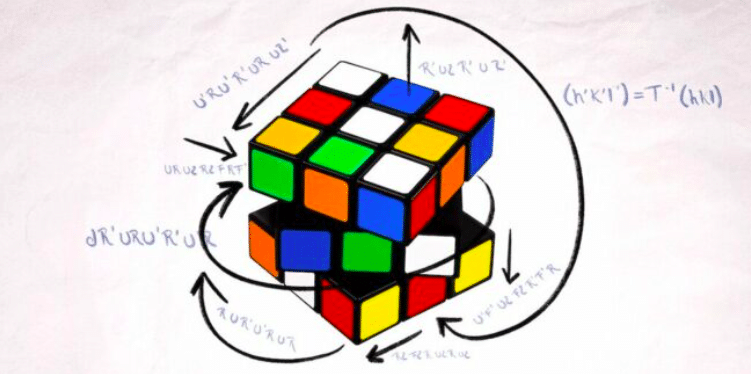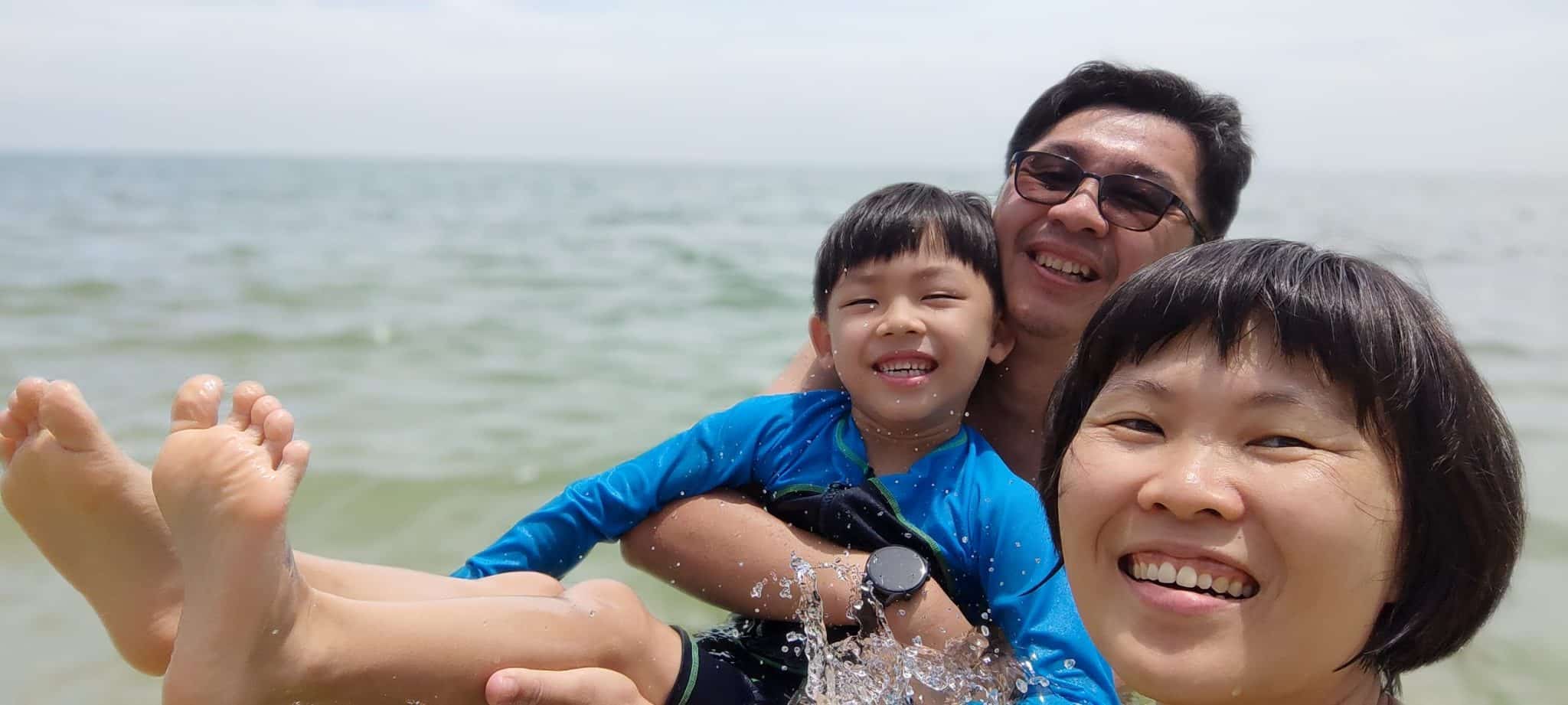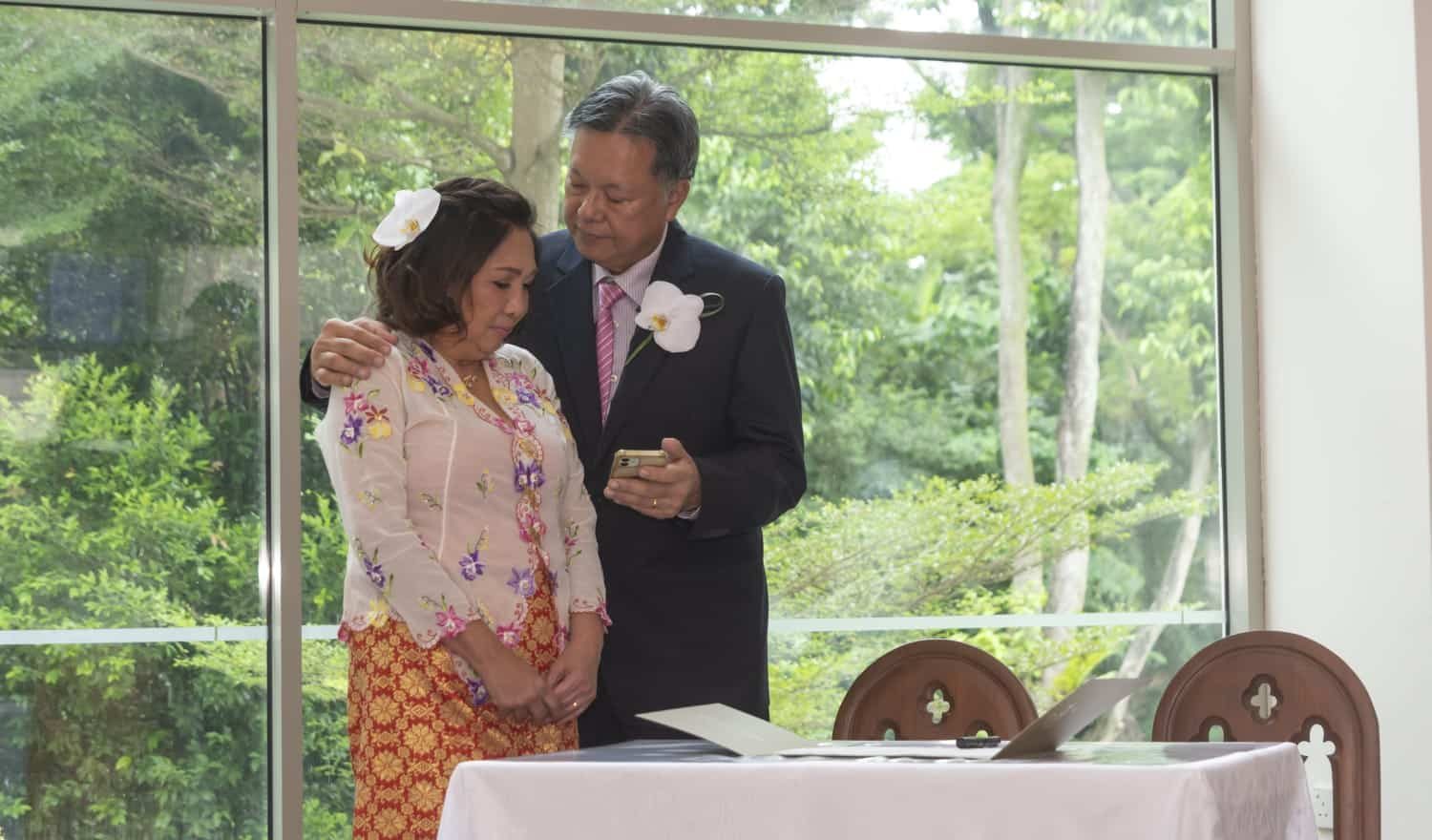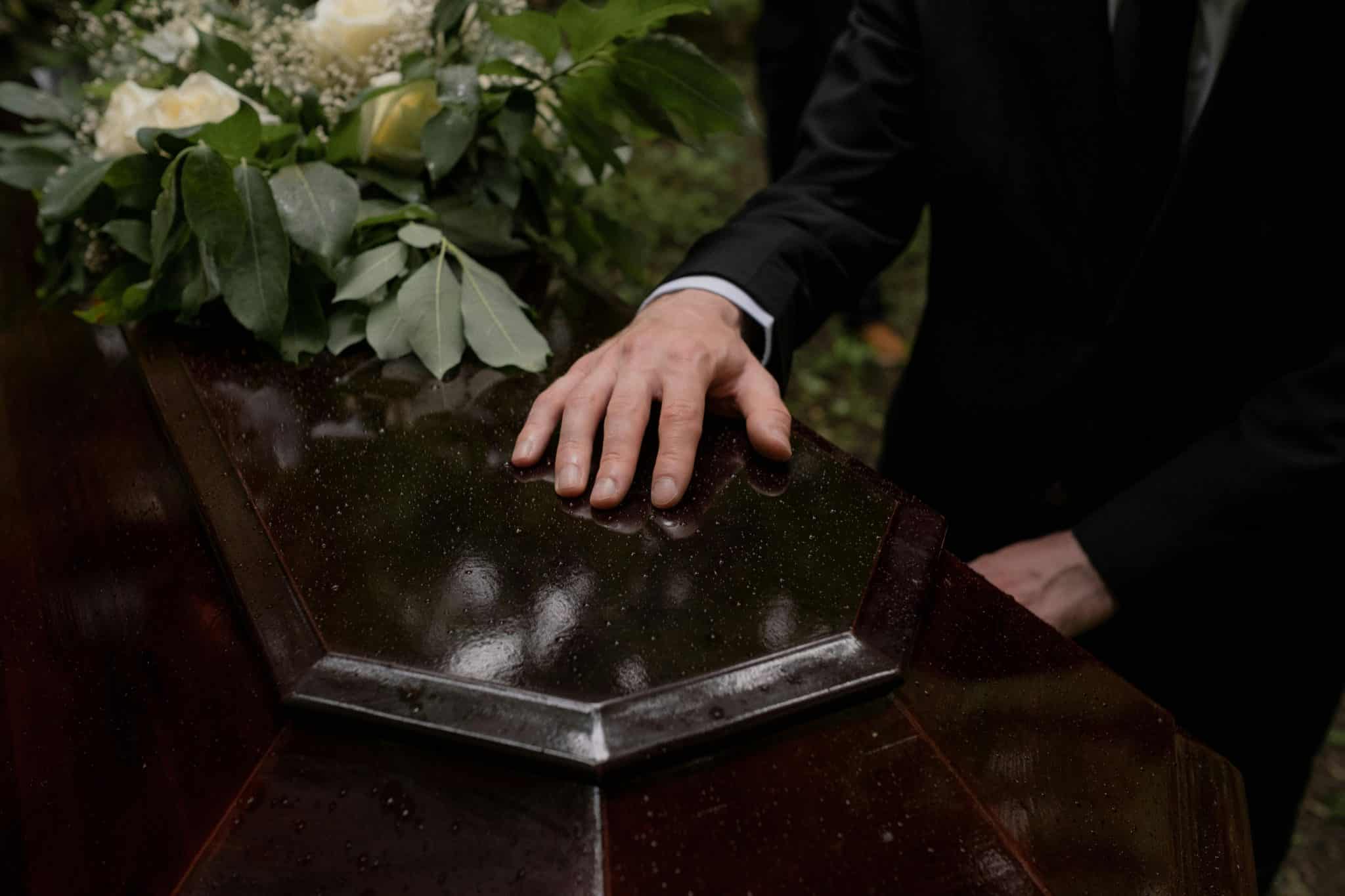When the shape of the Kingdom is a cube
Juliette Alvey for Mockingbird // April 29, 2022, 11:40 am

"Life often looks like the opposite of progress, so we question how God is working," writes Juliette Alvey in this reflection inspired by Netflix documentary The Speed Cubers. Image by Mockingbird.
Add to the list of random skills I learned during Covid: Solving a Rubik’s Cube.
My husband thought it was nerdy, but I didn’t care, because it was something to focus on that was not homeschooling or potty training. Maybe it was a way to escape my more pressing responsibilities, but it is also extremely satisfying to see the colours all match up at the end. What inspired me to learn was a documentary on Netflix called The Speed Cubers.
I discovered The Speed Cubers during a rare moment to sit and watch a show of my choosing while my husband did bedtime with the kids. While my young daughters screamed upstairs about brushing their teeth, my 10-year-old son sat down on the couch and said: “Hey Mom, what are you watching?”
I didn’t have the heart to send him away, so I said: “I don’t know yet. Let’s find something we both might like.”
Then, like magic, The Speed Cubers appeared in my suggestions. My son already had a Rubik’s Cube, and both of us had tried to learn how to solve it (without success). I thought: “Okay, this will be a light-hearted movie that we can enjoy together.”
I had no idea I would be tearing up the whole time!
Rubik’s Cube and relationships
Speed cubing is exactly what it sounds like: Solving Rubik’s Cubes as fast as you can. There are varying categories depending on the size of the cube, such as the 3×3 (the original) or the 4×4; there are even one-handed competitions.
“I just kept thinking, ‘There is a reason this is in my life and this is my child. I cannot just give up.’”
People hold world records in each of these categories, and the documentary introduces us to two of the most well-known record-holders, Feliks Zemdegs and Max Park.
Beyond the topic of cubing, the documentary is more about what life really always boils down to: Relationships.
Relationships can be difficult for someone with autism, like Max Park. His parents describe how, from the time he was a baby, they could tell there was something different about Max.
When he was diagnosed with autism, his parents sat on the edge of their bed bawling their eyes out. They let it all out, and then they looked at each other and said: “Okay, let’s get to work.” They were determined to do everything possible to help Max and to have a close relationship with him, even though he could not outwardly reciprocate their affection.
At one point in the documentary, Max’s mom says: “I just kept thinking, ‘There is a reason this is in my life and this is my child. I cannot just give up.’”
Right next to us
One of the most inspiring stories was from when Max was little: His mom was so sad that he didn’t want to play with her like she always dreamed about when she pictured having a child. Instead, he would stay super focused on what he was doing and did not want to play with anyone.
We do not always reciprocate His love, but He continues right next to us until we suddenly notice that He has been there the whole time.
She felt like giving up.
But one day she decided to just follow him around and do whatever he did.
If he laid down on the floor, she would lay down next to him. If he started playing with a toy, she would play right next to him. She didn’t ask him anything or try to convince him that he should play with her.
She was just there with him. This became a routine of hers, and eventually it kindled a deep relationship between them.
The way that Max’s parents love him reminds me of how God loves us. We do not always reciprocate His love, but He continues right next to us until we suddenly notice that He has been there the whole time. His faithfulness is constant.
Losing and loving
The other champion in the documentary is Feliks, who is older than Max and who, in the beginning, holds most of the world records in speed cubing. He is the best of the best and the person Max admires most.
Instead of focusing on the loss, he focuses on Max as a person.
Then, slowly but surely, Max starts beating many of Feliks’ records. This must have been difficult for Feliks, but he never becomes angry or bitter. Instead, he contacts Max to congratulate him on every single record he takes. Through these competitions they do not become bitter rivals but rather close friends.
Feliks becomes a faithful and supportive person in Max’s life. His friendship with Max is powerful – even Christ-like – because it involves losing and loving at the same time.
Instead of focusing on the loss, he focuses on Max as a person.
Taking shape
When life is messy, like an unsolved Rubik’s Cube, it is difficult for us to see God’s hand at work. We look around and see chaos and unsolvable problems, like sickness, war, broken relationships, the difficulty of autism … the list could fill a tome.
Life often looks like the opposite of progress, so we question how God is working.
You feel that the world and your own life are moving in the opposite direction than they should, then suddenly God’s deliverance shows up.
The funny thing about solving a Rubik’s Cube is that you have to “mess up” the layers you have already solved in order to complete it. To someone observing the last algorithm, it looks like you are completely destroying all of your work.
Then suddenly, the colours line up, beautifully complete.
This is the shape of God’s kingdom.
It is a great reversal: It is when you feel that the world and your own life are moving in the opposite direction than they should, and then suddenly God’s deliverance shows up.
This beautiful resolution is the sensation that cubers like Feliks and Max become addicted to. Maybe it is a way to escape the messiness of life or have a sense of control, but in Max’s case, cubing immerses him in the messiness of competition, rivalry, and relationships – and out of that comes unconditional love.
This article was first published by Mockingbird and is republished with permission. You can find more articles here.
FOR MORE ARTICLES LIKE THIS:
How an autistic boy in a wheelchair “shone as a light to the world”
Helping children with special needs find their place in the world
“Disabled does not mean unable”: 10 persons with special needs ascend Mount Fuji
We are an independent, non-profit organisation that relies on the generosity of our readers, such as yourself, to continue serving the kingdom. Every dollar donated goes directly back into our editorial coverage.
Would you consider partnering with us in our kingdom work by supporting us financially, either as a one-off donation, or a recurring pledge?
Support Salt&Light



